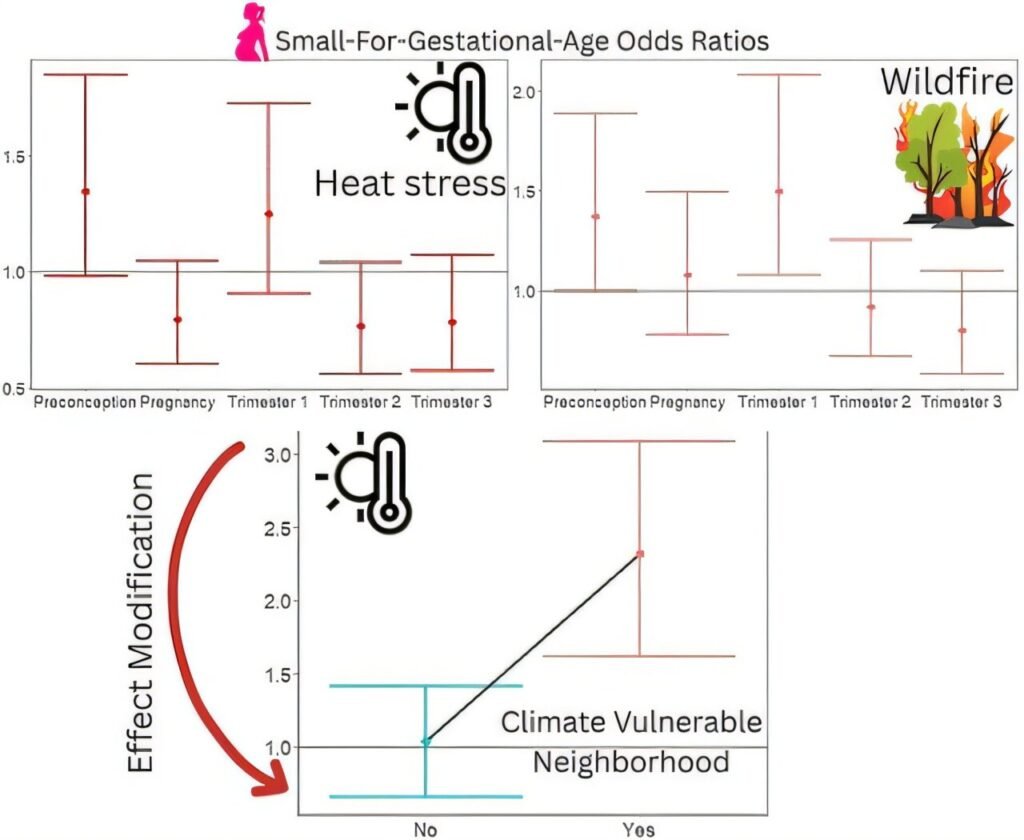Exposure to wildfire smoke and heat stress can have detrimental effects on birth outcomes for women, particularly in neighborhoods vulnerable to climate-related impacts, as per a recent study led by USC postdoctoral researcher Roxana Khalili, Ph.D.
The study, published in Environmental Science & Technology, sheds light on how living in areas prone to the harmful effects of climate-related exposures can significantly impact the effects of heat stress on adverse birth outcomes, even among women exposed to these conditions in the month before conception.
“We already know that poor air quality is linked to adverse health outcomes, with pregnant women and fetuses being especially vulnerable,” stated Khalili, who is a researcher at the Keck School of Medicine of USC. “Our understanding of the specific effects of wildfire smoke during pregnancy has been limited, and even less is known about the impact of these hazards during or immediately before conception.”
Khalili collaborated with Rima Habre, the director of USC’s CLIMA Center, to investigate the associations between exposure to wildfire smoke and heat stress on infant health. The study utilized data from the MADRES cohort (Maternal and Developmental Risks from Environmental and Social Stressors), an ongoing study of pregnant women in Los Angeles.
The research team analyzed 713 births among MADRES participants from 2016 to 2020. They utilized data from CalFIRE to identify the location, size, and duration of wildfires in southern California during the study period. The study also examined the impact of heat stress on pregnant women and fetuses, considering that pregnancy affects a woman’s ability to regulate body temperature.
By using sophisticated modeling methods, the researchers calculated ground-level smoke concentrations and heat stress exposures in study participants. They identified climate-vulnerable neighborhoods using geospatial tools like the California Urban Heat Island Index and the US Climate Vulnerability Index, which analyze various factors contributing to climate risks.
The study revealed that increased exposure to wildfire smoke and excessive heat in the month before conception and the first trimester of pregnancy was associated with higher odds of having a small-for-gestational-age (SGA) baby. SGA infants are at a greater risk of health complications, both immediate and long-term.
Furthermore, pregnant women exposed to moderate smoke-density days in the first trimester were more likely to have low-birth-weight babies. The study emphasized the importance of understanding the impact of wildfires and heat stress on pregnant women to develop protective measures and interventions.
As California faces longer and more severe wildfire seasons, urgent interventions are required to address the health risks associated with these climate hazards. The study highlighted the need for comprehensive research to strengthen community resilience and mitigate the cumulative impacts of climate-related exposures on maternal and infant health.


